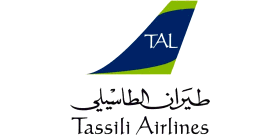 Air Algérie Strengthens Domestic Network with Tassili Airlines Integration
Air Algérie Strengthens Domestic Network with Tassili Airlines Integration
In a strategic move to bolster its domestic presence, Air Algérie is launching a new subsidiary by integrating the assets and personnel of Tassili Airlines. This landmark decision, overseen by a joint task force established on May 27, 2025, aims to reshape Algeria’s domestic aviation landscape, promising enhanced connectivity and improved services for travelers.
This integration marks a significant shift in Algeria’s aviation sector. Tassili Airlines, with its fleet of 15 aircraft, primarily served domestic routes and catered to the oil and gas industry, reaching 21 destinations. Air Algérie, the national carrier, operates a larger fleet of 56 aircraft, connecting 33 domestic and 45 international destinations. The combined strength of these two airlines creates a formidable force in the African aviation market.
For travel agents across Africa, this merger presents exciting new opportunities. A streamlined booking process with a single point of contact for all domestic Algerian flights simplifies operations. The unified fare structure and commission process further enhance efficiency, allowing agents to focus on providing seamless travel experiences for their clients. The expanded network reach, particularly to remote regions within Algeria, opens doors to new travel itineraries and expands the range of offerings for discerning travelers.
The implications of this merger extend beyond operational efficiencies. The combined fleet of 71 aircraft creates a powerful network, covering a wider range of destinations and offering increased flight frequencies. This enhanced connectivity is particularly beneficial for remote areas, fostering economic growth and tourism development. The move mirrors successful models seen elsewhere in Africa, such as Ethiopian Airlines’ robust domestic network, and positions Algeria as a stronger player in the regional aviation hub.
Algeria’s domestic aviation market has faced challenges, including operational inefficiencies and limited connectivity. This strategic integration directly addresses these issues. By consolidating resources and optimizing the route network, the new subsidiary aims to improve service reliability and efficiency. The 93.3% route overlap between the two airlines allows for better resource allocation and minimizes redundancy, leading to cost savings and improved service quality.
The Algerian government’s commitment to improving domestic aviation is evident in this initiative. The joint task force is prioritizing a rapid transition, ensuring operational continuity and focusing on service improvements. This proactive approach signals a strong commitment to enhancing the passenger experience and strengthening the nation’s aviation infrastructure.
This integration is not just about merging two airlines; it’s about building a stronger, more connected Algeria. Improved domestic air travel facilitates business, tourism, and personal travel, contributing to economic growth and regional development. The focus on remote areas is particularly significant, bridging geographical gaps and creating opportunities for previously underserved communities.
The long-term prospects for Algeria’s aviation sector look bright. This strategic move positions Air Algérie for growth and strengthens its competitive position in the African market. The enhanced domestic network, combined with the airline’s existing international routes, creates a powerful platform for future expansion and solidifies Algeria’s role as a key player in African aviation.
The integration of Tassili Airlines into Air Algérie’s operations is a game-changer for the Algerian domestic aviation market. It’s a win-win situation for travelers, travel agents, and the Algerian economy, promising improved connectivity, enhanced services, and a brighter future for air travel within the country.
